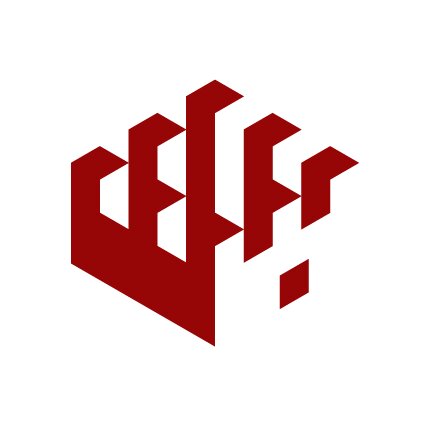Best Bankruptcy & Debt Lawyers in Chelyabinsk
Share your needs with us, get contacted by law firms.
Free. Takes 2 min.
List of the best lawyers in Chelyabinsk, Russia
About Bankruptcy & Debt Law in Chelyabinsk, Russia
Bankruptcy and debt law in Chelyabinsk, Russia, covers the legal processes and regulations governing situations where individuals or businesses cannot repay their debts. The law addresses the rights and obligations of debtors and creditors and outlines specific procedures for resolving debt disputes. Russian legislation in this area is quite comprehensive, covering voluntary and involuntary bankruptcy, debt restructuring, liquidation, and the protection of both creditors and debtors in difficult financial situations. Whether you are facing mounting personal debts or your company is unable to service its financial obligations, it is important to understand how bankruptcy and debt law works in your locality.
Why You May Need a Lawyer
There are many reasons why individuals or business owners in Chelyabinsk may require legal assistance in matters of bankruptcy and debt. Common situations include:
- Struggling to make payments on consumer or business loans
- Receiving threats or legal actions from creditors
- Facing court orders or enforcement proceedings related to debt
- Wanting to restructure debts or negotiate repayment plans
- Considering voluntary bankruptcy to relieve financial pressure
- Business owners dealing with insolvency or operational shutdowns due to debts
- Needing protection from aggressive collection practices
- Wishing to contest the validity or amount of a claimed debt
A lawyer can offer guidance through complex legal procedures, represent your interests in court, help negotiate with creditors, and ensure you comply with all relevant laws and regulations.
Local Laws Overview
In Chelyabinsk, as elsewhere in Russia, bankruptcy is regulated by the Russian Federal Law on Insolvency (Bankruptcy). This law sets out who may file for bankruptcy, the necessary procedures, creditor rights, and debtor protections. Bankruptcy can be initiated by the debtor, a creditor, or the authorized state body. There are differences between personal and corporate bankruptcy processes, including mandatory court involvement, financial analysis, and possible liquidation of assets to repay debts.
For individuals, the law provides an opportunity to discharge debts under specific conditions. For businesses, either reorganization (external management) or liquidation may be an option. Debt restructuring, debt settlements with creditors, and enforcement of payment obligations are also governed tightly by local rules and interpretations specific to Chelyabinsk courts. Importantly, courts may impose restrictions on insolvent individuals for some years after bankruptcy, and not all debts are discharged in bankruptcy proceedings.
Frequently Asked Questions
What is the difference between bankruptcy for individuals and for businesses in Chelyabinsk?
Personal bankruptcy applies to individuals who cannot meet their debt obligations, while business bankruptcy involves companies facing insolvency. The court procedures, asset liquidation rules, and consequences differ between the two cases.
Can I file for bankruptcy on my own, or do I need a lawyer?
While it is legally possible to file for bankruptcy independently, the process is complex and involves many legal procedures. Having a lawyer increases your chances of a smooth and successful case outcome.
Are all debts wiped out after bankruptcy?
No, certain debts such as child support, compensation for harm, and some administrative or criminal penalties are not discharged in bankruptcy.
How long does the bankruptcy process take?
The duration varies depending on the complexity of the case, but typically personal bankruptcy may take 6 to 12 months or longer, while corporate bankruptcies can take even more time due to liquidation or restructuring procedures.
What happens to my property if I am declared bankrupt?
Most of your property may be used to satisfy creditors, but there are specific exemptions such as essential household items and your only home in most cases.
Will bankruptcy affect my ability to get loans in the future?
Yes, bankruptcy is recorded in your credit history and can restrict your ability to obtain loans or credit for several years after proceedings are completed.
Can creditors continue to pursue me during bankruptcy proceedings?
Once a bankruptcy case has been accepted by the court, most creditor actions to collect debts are suspended until the case resolves.
Are there alternative options to bankruptcy?
Yes, debt restructuring, settlements, and negotiations with creditors may be possible alternatives to formal bankruptcy, often with the help of a lawyer or mediator.
What are my obligations as a debtor during bankruptcy?
You are required to disclose all assets, income, and debts honestly, cooperate with the court and court-appointed managers, and follow all court orders and legal requirements.
Who oversees bankruptcy procedures in Chelyabinsk?
Bankruptcy proceedings are supervised by the Arbitration Court of the Chelyabinsk Region, along with court-appointed insolvency managers and, in some cases, local enforcement authorities.
Additional Resources
If you need assistance or more information about debt and bankruptcy law in Chelyabinsk, the following resources can be useful:
- Arbitration Court of the Chelyabinsk Region - for bankruptcy case filings and official procedures
- Federal Tax Service of Russia - for information on debts, taxes, and bankruptcy notifications
- Local offices of the Federal Bailiff Service - for enforcement and debt collection issues
- State legal aid offices - for free or subsidized legal consultations on bankruptcy
- Chelyabinsk regional bar associations - for finding qualified bankruptcy lawyers
Next Steps
If you are facing overwhelming debt or considering bankruptcy in Chelyabinsk, it is important to act proactively. Start by gathering all relevant financial documents and making a list of your assets, liabilities, and creditors. Contact a qualified bankruptcy or debt lawyer with experience in local practices. Schedule a consultation to discuss your situation and options. If immediate action is needed, especially if facing legal claims, seek legal advice as soon as possible. Remember to consider all available legal remedies, including negotiation and restructuring, before proceeding with a formal bankruptcy case. Professional guidance will ensure your rights are protected and help you navigate a difficult financial situation with clarity and confidence.
Lawzana helps you find the best lawyers and law firms in Chelyabinsk through a curated and pre-screened list of qualified legal professionals. Our platform offers rankings and detailed profiles of attorneys and law firms, allowing you to compare based on practice areas, including Bankruptcy & Debt, experience, and client feedback.
Each profile includes a description of the firm's areas of practice, client reviews, team members and partners, year of establishment, spoken languages, office locations, contact information, social media presence, and any published articles or resources. Most firms on our platform speak English and are experienced in both local and international legal matters.
Get a quote from top-rated law firms in Chelyabinsk, Russia — quickly, securely, and without unnecessary hassle.
Disclaimer:
The information provided on this page is for general informational purposes only and does not constitute legal advice. While we strive to ensure the accuracy and relevance of the content, legal information may change over time, and interpretations of the law can vary. You should always consult with a qualified legal professional for advice specific to your situation.
We disclaim all liability for actions taken or not taken based on the content of this page. If you believe any information is incorrect or outdated, please contact us, and we will review and update it where appropriate.
Browse bankruptcy & debt law firms by service in Chelyabinsk, Russia
Chelyabinsk, Russia Attorneys in related practice areas.









